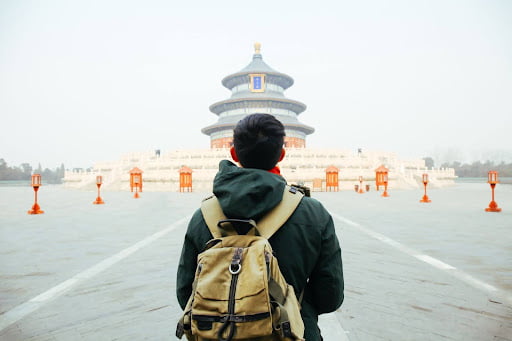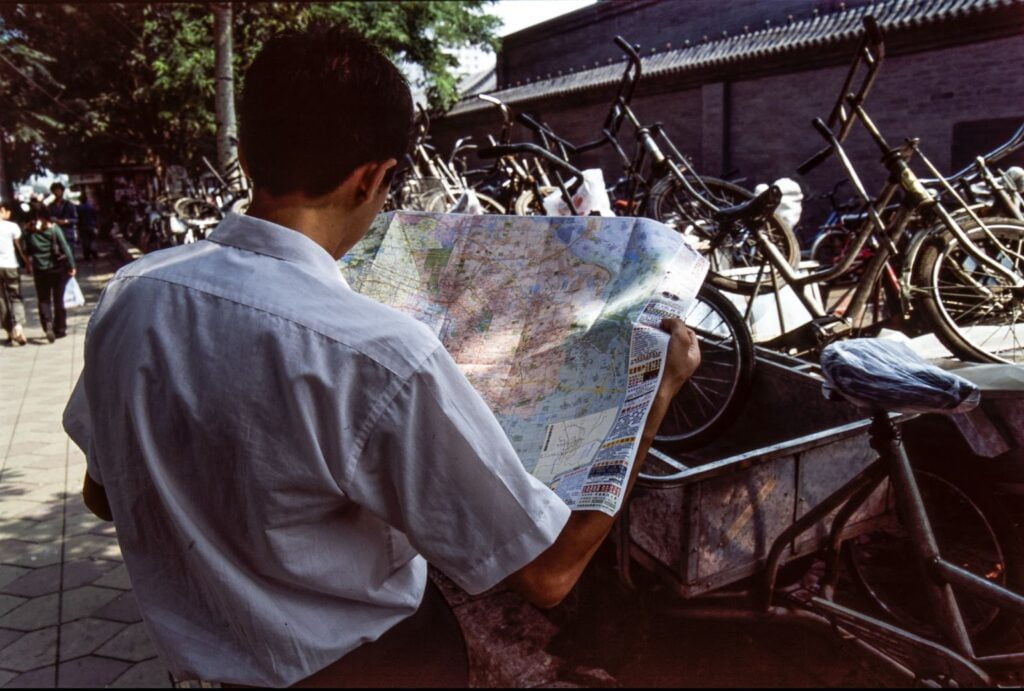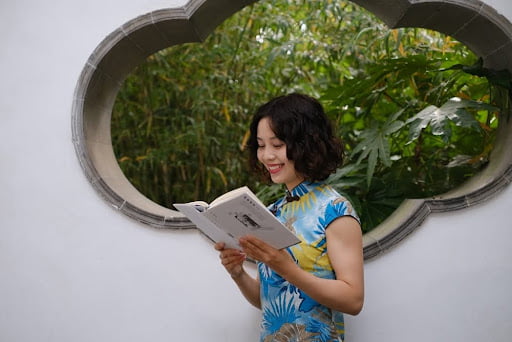Mandarin for Travelers: Essential Phrases

Welcome to your go-to guide for mastering some of the most common Mandarin phrases for travelers. Whether you’re planning a trip to the bustling streets of Beijing, the scenic landscapes of Yunnan, or anywhere in between, a few useful Chinese expressions under your belt can significantly enhance your travel experience.
Learning Mandarin specifically for travelers isn’t just about getting by with basic needs, it’s about connecting with people, understanding the culture, and making your travel experience smoother and more enjoyable. So we’ve compiled this list of essential phrases that’ll help you in various scenarios, from asking for directions to booking into your hotel.
We understand that learning a new language can be daunting, especially one as complex as Mandarin. That’s why we’ve broken down these phrases into bite-sized, manageable sections, each designed to equip you with the language skills needed for common travel situations. With just a handful of useful Chinese expressions, the world of Mandarin-speaking regions opens up to you in fascinating and rewarding ways.
So, let’s get started on this linguistic adventure. By the end of this guide, you’ll have a solid foundation of common Mandarin phrases for travelers that will not only assist you in practical situations but also enrich your overall travel experience.
Related Reading: Do You Need to Learn Chinese to Visit China?
Getting started with Mandarin pronunciation
Before diving into the common Mandarin phrases for travelers, getting a handle on the basics of Mandarin pronunciation is crucial. The beauty of Mandarin lies in its tonal nature, which, while unique, can be a bit tricky for first-timers. But don’t worry! With a bit of practice, you’ll start to get the hang of it, and soon you’ll be confidently pronouncing useful Chinese expressions.
The tones of Mandarin
Mandarin Chinese is a tonal language, meaning the tone in which a word is spoken can change its meaning. There are four main tones in Mandarin, plus a “neutral” tone, each essential to mastering even the most common Mandarin phrases for travelers. Here’s a quick rundown:
- First tone: A high, level tone. Imagine holding a note at a constant pitch.
- Second tone: A rising tone, similar to the intonation used in English when asking a question.
- Third tone: A falling-rising tone. It starts mid-level, dips down, then rises. The elusive third tone is a great one to master.
- Fourth tone: A sharp, falling tone, much like giving a command.
- Neutral tone: Light and quick, without any specific pitch direction. If you can nail the nuance of the fourth and fifth tones, you will start seeing improvements in your overall pronunciation.
Pronunciation tips
- Listen and repeat: One of the best ways to improve your pronunciation is by listening to native speakers and mimicking their pronunciation. There are plenty of resources online where you can hear common Mandarin phrases for travelers.
- Practice the tones: Use tone drills to practice the four tones. This will help you differentiate between them, a crucial skill when using useful Chinese expressions.
- Speak out loud: Don’t be shy! Speaking out loud is key to mastering Mandarin for travelers. Try to practice the phrases you learn with a friend or record yourself to self-assess your pronunciation skills.
Remember, mastering Mandarin pronunciation takes time and patience. Don’t get discouraged by the initial challenge of tones. Keep practicing, and you’ll find that with each attempt, you’ll get better and better.
By focusing on the pronunciation first, you’re laying a strong foundation for your ability to communicate effectively in Mandarin. With a solid grasp of Mandarin pronunciation, you’ll be ready to tackle the common Mandarin phrases for travelers and navigate your way through Mandarin-speaking regions easily and confidently.
Related Reading: The 7 Biggest Mistakes Chinese Learners Make
Basic greetings and courtesies

Now that you’ve got a grip on Mandarin pronunciation let’s move on to some of the most common Mandarin phrases for travelers that you’ll use daily. Greetings and courtesies are the bread and butter of any conversation, and in Mandarin-speaking areas, a little politeness goes a long way. These phrases will help you make a great first impression and show respect to the people you meet.
Greetings
- Hello: 你好 (Nǐ hǎo) – There are a lot of ways to start a conversation in Mandarin that you can play with and use, but nǐ hǎo is a nice simple one to learn.
- Good morning: 早上好 (Zǎoshang hǎo)
- Good evening: 晚上好 (Wǎnshàng hǎo)
A lot of Chinese language teachers are wrong about greetings, so using these greetings shows that you’re making an effort to speak Mandarin, which local speakers always appreciate. They’re your first step in connecting with others and are essential for anyone learning Mandarin for travelers.
Courtesies
- Please: 请 (Qǐng)
- Thank you: 谢谢 (Xièxiè)
- You’re welcome: 不客气 (Bù kèqì)
- Excuse me/Sorry: 对不起 (Duìbùqǐ) or 劳驾 (Láojià) when getting someone’s attention.
- Goodbye: 再见 (Zàijiàn)
These useful Chinese expressions of politeness are crucial in maintaining harmony and showing respect. Whether you’re asking for directions, making a purchase, or simply finding your way through crowded places, these phrases will help you do so gracefully.
Additional tips
- Smile: A friendly smile goes a long way and is a universal sign of goodwill.
- Use polite titles: Adding “先生 (Xiānshēng)” for Mr. or “女士 (Nǚshì)” for Ms. when addressing someone shows respect.
- Be patient: If you don’t understand something, don’t hesitate to ask politely for clarification: “请你再说一遍 (Qǐng nǐ zàishuō yībiàn)”, which means “Please say that again.”
Practice makes perfect
Try to use these greetings and courtesies as often as you can. Practice with a friend, in front of a mirror, or even with native speakers if you can. The more you use them, the more natural they’ll feel.
Remember, for travelers, learning these common Mandarin phrases isn’t just about making transactions smoother; it’s about showing respect for the culture and connecting with people on a human level. Even a simple “谢谢 (Xièxiè)” can open up a world of warmth and hospitality.
Related Reading: Can You Learn Chinese While You Sleep?
Finding your way

Getting around in a Mandarin-speaking region can be one of the most exciting aspects of your travel experience. With the right common Mandarin phrases for travelers, you can explore with ease, from bustling city streets to serene countryside paths. Let’s look at useful Chinese expressions that will help you find your way, use public transportation, and make the most of your adventures.
Asking for directions
Finding your way around might require asking locals for assistance. Here are some phrases to help you start these interactions on the right foot:
- Where is…?: …在哪里?(… zài nǎlǐ?)
- How do I get to…?: 我怎么去…?(Wǒ zěnme qù…?)
- Is this the way to…?: 这是去…的路吗?(Zhè shì qù… de lù ma?)
- Can you show me on the map?: 你可以在地图上指给我看吗?(Nǐ kěyǐ zài dìtú shàng zhǐ gěi wǒ kàn ma?)
Being able to ask for directions helps you find your way and opens up opportunities for interaction with locals, making your experience richer and more authentic.
Transportation
Understanding how to discuss transportation will make traveling from one place to another smoother and less stressful. Here are some essential phrases:
- I want to go to…: 我想去… (Wǒ xiǎng qù…)
- How much is the ticket to…?: 到…的票多少钱?(Dào… de piào duōshǎo qián?)
- Where can I buy a ticket?: 我在哪里可以买票?(Wǒ zài nǎlǐ kěyǐ mǎi piào?)
- What time does the… leave?: …几点离开?(… jǐ diǎn líkāi?)
- Is this seat taken?: 这个座位有人吗?(Zhège zuòwèi yǒurén ma?)
These phrases will help you with everything from catching a bus or train to ensuring you’re headed in the right direction.
Tips for smooth travel
- Always have the address written in Chinese: If you’re heading somewhere specific, it can be a lifesaver, especially if you need to show it to a taxi driver or ask for directions.
- Download a map app that works offline: Technology can be a great aid, especially apps that allow you to navigate without an internet connection.
- Learn to recognize some characters: Familiarizing yourself with characters for “exit,” “entrance,” “bathroom,” and transportation terms can be incredibly helpful.
Exploring your way through a new area might seem daunting initially, but with these traveler phrases in your toolkit, you’ll find yourself moving around with greater confidence. Remember, every interaction is a chance to practice Mandarin and connect with the local culture.
Be bold in asking for help or striking up a conversation. More often than not, people will appreciate your effort to speak their language and gladly assist you. So, ask for directions, hop on that bus, and discover the wonders that await.
Accommodation
Securing a place to stay is a top priority for any traveler. Whether you’re checking into a hotel, a cozy B&B, or a modern hostel, knowing some common Mandarin phrases for travelers can make the process smoother and more enjoyable. Let’s dive into some useful Chinese expressions that will help you handle accommodation arrangements with ease.
Booking your stay
In the age of online bookings, you might find your accommodation sorted before you even arrive. However, it’s always good to be prepared with a few phrases, just in case:
- Do you have any rooms available?: 你们有空房间吗?(Nǐmen yǒu kòng fángjiān ma?)
- I have a reservation.: 我预订了一个房间。(Wǒ yùdìng le yíge fángjiān.)
- Can I see the room first?: 我可以先看看房间吗?(Wǒ kěyǐ xiān kàn kàn fángjiān ma?)
These phrases are your starting point for interactions related to your stay, ensuring you have a place to rest and recharge.
During your stay
Once you’ve checked in, you might need a few more phrases to manage your stay comfortably. Whether it’s a request for amenities or needing assistance, here’s how you can communicate:
- Can I have the Wi-Fi password?: 请问Wi-Fi密码是什么?(Qǐngwèn, Wi-Fi mìmǎ shì shénme?)
- Where is the breakfast area?: 早餐在哪里?(Zǎocān zài nǎlǐ?)
- Could I get an extra blanket?: 我可以多要一条毯子吗?(Wǒ kěyǐ duō yào yī tiáo tǎnzi ma?)
These phrases will help ensure your stay is as comfortable as possible, addressing your basic needs.
Checking out
When it’s time to say goodbye and move on to your next destination, a few key phrases will help you check out smoothly:
- I’d like to check out, please.: 我想退房。(Wǒ xiǎng tuì fáng.)
- Can I leave my luggage here?: 我可以把行李寄存这里吗?(Wǒ kěyǐ bǎ xínglǐ jìcún zhèlǐ ma?)
- Can you call me a taxi?: 你可以帮我叫出租车吗?(Nǐ kěyǐ bāng wǒ jiào chūzūchē ma?)
Checking out is usually straightforward, but these phrases will ensure you leave on good terms with all your travel needs met.
A few extra tips
- Always have your booking confirmation handy: Whether it’s a printout or a digital copy on your phone, having proof of your reservation can smooth over any confusion.
- Be clear and polite: Mandarin for travelers is all about clear communication. Even if your pronunciation isn’t perfect, a polite tone and a smile can go a long way.
- Use translation apps if needed: If you’re struggling to make yourself understood, don’t hesitate to use a translation app. It can be a great aid in ensuring your requests are met.
Accommodation is more than just a place to sleep, it’s your home base during your travels. With these common Mandarin phrases, you’ll be able to handle your stay with confidence, from check-in to check-out.
Dining and food

Exploring the culinary landscape is undoubtedly one of the highlights of traveling. The flavors, the smells, and the rituals of dining in a new place can add layers of richness to your experience. When dining in Mandarin-speaking regions, a few common Mandarin phrases for travelers can transform your meal from a mere eating occasion to an adventure.
Let’s check out some useful Chinese expressions that will help you enjoy dining and food scenarios with ease. You can also check out our in-depth looks at how to order food in a Chinese restaurant or go all in and have a read of Chinese for Foodies: A Culinary Language Journey.
Ordering food and drinks
Whether you’re sitting down in a restaurant or grabbing a bite from a street vendor, knowing how to order can make all the difference:
- I would like to order…: 我想点… (Wǒ xiǎng diǎn…)
- What do you recommend?: 你有什么推荐?(Nǐ yǒu shénme tuījiàn?)
- I’m vegetarian: 我吃素的 (Wǒ chīsù de)
- Can I have the bill, please?: 请给我买单 (Qǐng gěi wǒ mǎidān)
These phrases help you secure a meal and ensure that your dietary preferences are communicated clearly.
At the market
Visiting local markets isn’t just about shopping, it’s about experiencing the culture. Here’s how to communicate effectively:
- How much is this?: 这个多少钱?(Zhège duōshǎo qián?)
- Can I try this?: 我可以试试这个吗?(Wǒ kěyǐ shìshì zhège ma?)
- I’ll take this one: 我要这个 (Wǒ yào zhège)
- Can you give me a discount?: 可以给我打折吗?(Kěyǐ gěi wǒ dǎzhé ma?)
Engaging with market vendors using these phrases can lead to delightful culinary discoveries and even a bargain or two.
Menus in Mandarin can be daunting. Here are a couple of tips to help you decipher them:
- Look for pictures or English descriptions: Many places have visual menus or translations available.
- Learn a few key food-related characters: Recognizing characters for “chicken” (鸡), “beef” (牛), “fish” (鱼), and “vegetables” (菜) can be incredibly helpful.
- Don’t hesitate to ask for help: Showing interest in understanding what you’re ordering can lead to friendly assistance and recommendations.
Embrace the experience
- Try new things: Use the phrase “I’ll try this, please” (我要试试这个, Wǒ yào shìshì zhège) to open yourself up to new flavors.
- Express your satisfaction: Saying “This is delicious!” (这个很好吃!Zhège hěn hǎochī!) can be a joyful way to connect with your host or chef.
Dining out while traveling is as much about the experience as the food. With these traveling Mandarin phrases, every dining experience becomes an opportunity to practice your Mandarin, learn about local customs, and enjoy some incredible food. So arm yourself with these useful Chinese expressions and dive into the culinary delights that await you.
Related Reading: Tips for a First-Time Visit to China
Sightseeing and activities

Whether you’re marveling at ancient architecture, attending one of the many Chinese festivals, soaking in natural wonders, or joining in with vibrant celebrations, having a few common Mandarin phrases can greatly enhance your explorations. Let’s walk through some useful Chinese expressions to help you make the most of your sightseeing and activities.
Asking for recommendations
Locals are, of course, your best resource for finding those hidden gems that guidebooks might not cover. Here’s how to tap into that wealth of knowledge:
- What places do you recommend visiting?: 你推荐去哪些地方?(Nǐ tuījiàn qù nǎxiē dìfang?)
- Is there a local specialty I should try?: 这里有什么特色我应该尝试的吗?(Zhèlǐ yǒu shéme tèsè wǒ yīnggāi chángshì de ma?)
These phrases help you uncover the best local spots and show your interest in the local culture and lifestyle.
Buying tickets
You’ll likely need to purchase tickets for a museum, park, or event. Here are some phrases to smooth the process:
- How much is the entrance fee?: 门票多少钱?(Ménpiào duōshǎo qián?)
- Can I buy a ticket for…?: 我可以买一张…的票吗?(Wǒ kěyǐ mǎi yì zhāng… de piào ma?)
- What time does it start?: 什么时候开始?(Shénme shíhòu kāishǐ?)
Knowing how to inquire about tickets and timings can help you plan your day more efficiently.
Participating in activities
Taking part in activities requires enthusiasm and the ability to express your interest and ask for details:
- I want to join this activity; how can I sign up?: 我想参加这个活动,我怎么报名?(Wǒ xiǎng cānjiā zhège huódòng, wǒ zěnme bàomíng?)
- Is there a guide who speaks English?: 有讲英语的导游吗?(Yǒu jiǎng yīngyǔ de dǎoyóu ma?)
Expressing your interest and ensuring you have all the necessary information can make participating in local activities a breeze.
Popular tourist spots can be crowded and confusing. Here are some phrases to help you navigate the hustle and bustle:
- Where is the entrance/exit?: 入口/出口在哪里?(Rùkǒu/Chūkǒu zài nǎlǐ?)
- Excuse me, can you help me take a photo?: 不好意思,你可以帮我拍张照吗?(Bù hǎoyìsi, nǐ kěyǐ bāng wǒ pāi zhāng zhào ma?)
Being able to ask for help politely can greatly enhance your sightseeing experience.
Enjoying the experience
Remember, the goal of sightseeing and participating in activities isn’t just to see or do as much as possible but to truly enjoy and appreciate each experience. Use these phrases to engage more deeply with your surroundings:
- This is beautiful!: 这里很美!(Zhèlǐ hěn měi!)
- Thank you for the wonderful experience: 谢谢你给我这么好的体验 (Xièxiè nǐ gěi wǒ zhème hǎo de tǐyàn)
With these Mandarin phrases for travelers in your toolkit, you can delve into the heart of your destination’s attractions and activities. Whether asking for recommendations, buying tickets, or simply expressing your awe and gratitude, these useful Chinese expressions will enrich your travel experience, making each moment more meaningful and memorable.
So go ahead, step out, and discover the wonders that await with confidence and curiosity.
Related Reading: 12 Traditional Chinese Games and Outdoor Activities
Unlock the World of Mandarin: Your Next Steps to Fluency
As we wrap up this guide to common Mandarin phrases for travelers, we hope you’re feeling inspired and more confident about using Mandarin during your travels. With the useful Chinese expressions we’ve shared, you’re well on your way to surviving and thriving in Mandarin-speaking environments.
But why stop here? If you’re eager to dive deeper and learn Mandarin faster and easier, we’ve got just the thing for you. Imagine holding conversations, exploring new places, and connecting with locals on a level you never thought possible.
It all starts with understanding where you stand and what your next steps should be.
Imagine the doors that could open and the experiences that await you with a deeper understanding of Mandarin. The ability to effortlessly order food, ask for directions, share a moment with a local, or even discover hidden gems off the beaten path can transform your travel experience from ordinary to extraordinary.
If deepening your Mandarin skills excites you, we have something special to offer. We’re inviting you to take an important step toward unlocking your full potential with the Mandarin language. Our FREE Mandarin Fluency Scorecard is designed to provide a personalized assessment of your current skill level and a customized guide to achieving fluency.
It’s your unique opportunity to identify personal weaknesses, understand the barriers to fluency, and discover the most effective next steps explicitly tailored for you.
Don’t let this chance slip through your fingers. Completing the Mandarin Fluency Scorecard takes less than a minute, but the insights and guidance you’ll receive can save you countless hours of frustration and accelerate your learning journey. Yes, you read that right — it’s completely FREE and designed to put you on the fast track to Mandarin mastery.
The path to fluency is within reach, and with our customized guide, you’ll have the clarity and confidence to move forward. So, why wait? Take that step today and transform your ability to connect, explore, and thrive in Mandarin-speaking environments.








